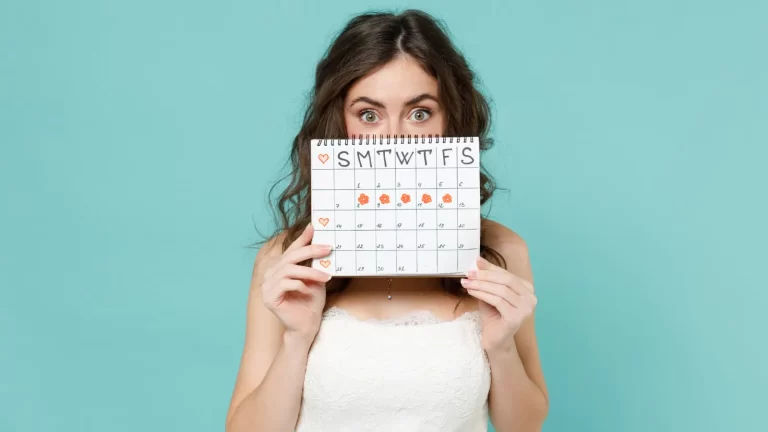
[ad_1]
The menstrual cycle is no less than a puzzle. You may anticipate something, but something else may happen. This is because your cycle’s length might vary, sometimes even month to month, depending on a wide range of different factors. Given that a period usually lasts between 4 and 8 days, a sudden change in the menstrual cycle may worry you. So, are you going through shorter periods that only last a day or two? Let’s find out why it may be so!
Dr Asha Hiremath, Consultant – Obstetrician, Gynaecologist and Laparoscopic Surgeon, Motherhood Hospital, Indiranagar, Bengaluru, spoke to Health Shots about the shorter menstrual cycle problem and the reasons behind it.
Dr Hiremath says, “For those of you who have been experiencing a sudden shortened menstrual cycle, there could be multiple reasons causing the same. A lot of these can be rectified by yourself.”
Here are a few reasons why your menstrual cycle is getting shorter:
1. Stress: Increased stress levels also result in your periods lasting only a couple of days since stress adversely affects your hormones. Once your stress levels go down, your periods’ length most likely to come back to normal.

2. Rigorous workout: If you have been exercising aggressively, it may result in hampering the release of the hormones controlling ovulation, resulting in shorter periods.
3. Certain medications: Certain medicines such as blood control pills, blood thinners, and steroids, to name a few, also contribute to shorter periods.
4. Other diseases: Medical conditions such as PCOS, thyroid, tuberculosis of the uterus, and certain sexually transmitted diseases also result in disturbing your menstrual cycle.
5. Poor ovulation: Shorter periods could also be a sign of poor ovulation. This is known as anovulation, and it might cause lighter or irregular periods.
What if the periods last only for 1 or 2 days?
If your period only lasts one or two days, your body may not be making enough oestrogen, which is required to build the endometrium, which is lost during periods when there isn’t a pregnancy. “If there is a lack of estrogen in your body, the endometrium would not be thick enough and hence the blood flow would be scant. Shorter periods could also mean that your periods have not yet regulated if you have just entered puberty since it takes time for your hormones, especially estrogen, to balance out,” Dr Hiremath explains. If you are over 45 years old, simply having periods that last one or two days may also be a sign of approaching menopause.

What is considered a normal menstrual cycle?
Dr Hiremath says, “Every woman’s period cycle is different in terms of duration and consistency. Even though a menstrual cycle ranging between 4 to 8 days is considered to be normal.” Don’t panic, though, if your periods have rarely lasted longer than two days, especially if they are regular and the flow is not too heavy or light. A typical menstrual cycle should be 28 days long, even though a cycle can range between 28 and 40 days.
However, it is advisable to see a gynaecologist if you have suddenly noticed a shortened cycle. A gynaecologist will be able to pinpoint the precise cause of the problem so that the appropriate steps can be taken to reverse it right away.
Follow these 5 tips to maintain a healthy menstrual cycle:
1. Avoid stress: Don’t let stress mess with you. Always practice meditation or yoga to tackle this issue.
2. Sleep well: Deep sleep is crucial! Try to sleep early and get enough sleep. According to a study published in the journal PLOS One, if your sleep cycle is healthy, it can help maintain the menstrual cycle.

3. Follow a healthy diet: For a regular menstrual cycle, you need to focus on your diet. Try to include all the essential vitamins and minerals in your diet so that they can help together to manage your hormones.
4. Exercise: In order to regularize your cycle, it is crucial that you move your body. A study in the Journal of Education and Health Promotion found that regular exercise can help avoid obesity, maintain hormonal balance, and result in regular periods.
5. Avoid overeating: Most of the time, the cause of irregular menstrual cycles is your diet. So don’t skip your meal, avoid junk food, do not binge eat or overeat, and most importantly, pay attention to your nutritional deficiencies.
[ad_2]
Source link